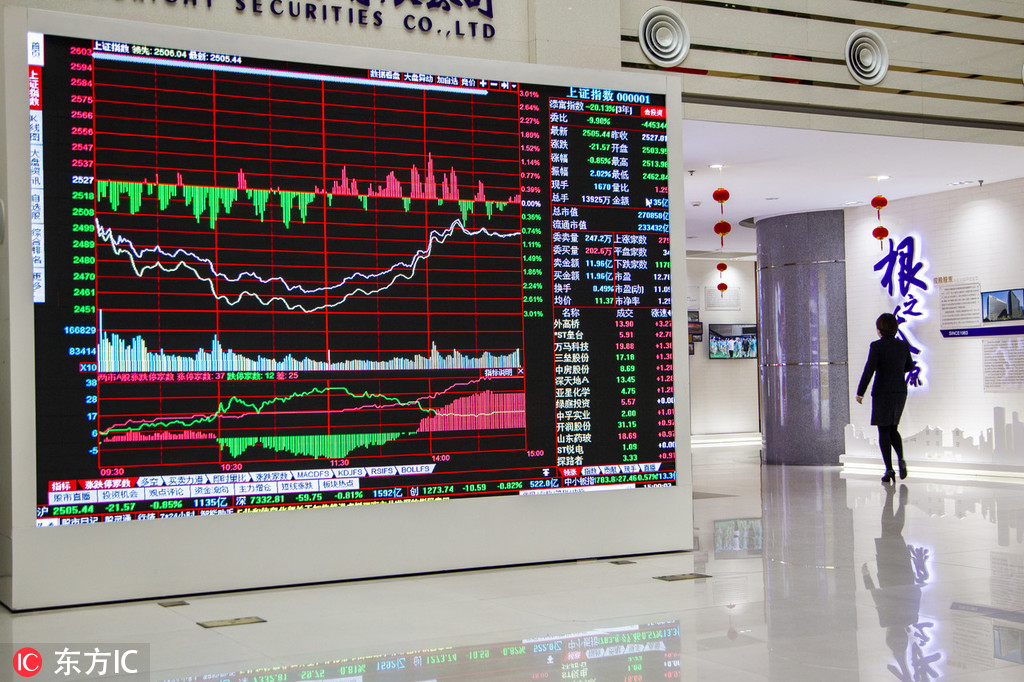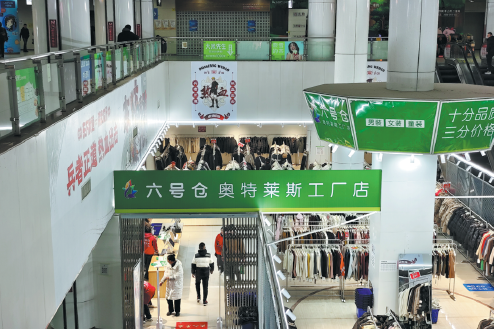Defense shares to gain on securitization moves


The ongoing asset securitization trend will fuel the future growth of A-share companies in the defense industry, which will help them to build on their strong growth in the first quarter, experts said.
Market tracker Wind Info's data showed shares of listed companies related to the national defense industry surged 38.1 percent during the first quarter of this year.
Although the sector declined slightly in the first few weeks of April, it managed to pick up in the last week, gaining 6.4 percent, while the benchmark CSI 300 index climbed 4.9 percent during the same period.
According to Minsheng Securities, 84 of the 110 listed defense-related companies released their first quarter results by April 26. Their revenues rose 10.7 percent and net profits grew 14.7 percent on average.
Ground ordnance equipment, aviation and national defense informatization were the three areas that registered the most significant growth in the first three months, up 93.7 percent, 27.7 percent and 16.5 percent respectively.
Interconnect solution provider Avic Jonhon Optronic Technology reported the most significant quarterly income growth of 45.95 percent during the first quarter, with its turnover topping 2.15 billion yuan ($319 million). Its net profit surged 39 percent to 233 million yuan.
Meanwhile, the total value of the six defense-related funds surpassed 18.48 billion yuan in the first quarter, up 28 percent from a quarter earlier, according to Dongxing Securities.
Lu Zhou, chief defense analyst at Dongxing, attributed the increased value to the rally of listed defense shares.
"The military sector has started to bottom out. More favorable reform policies are expected to be introduced this year, including the adjusted pricing mechanism for military products," said Lu.
The 13th Five-Year Plan (2016-20) will end next year. There will likely be more orders for military-related enterprises, thanks to the stable military expenditure, which will be translated into accelerated development of the listed companies, he said.
In this sense, Lu said that military companies with expertise in technology, media and telecom will possibly reach "a tipping point" in their performance, promising more room for drastic increase in share value.
General component assembly companies, which have turned in strong fiscal results in the first quarter, are likely to retain the momentum in the next few months, he said.
Although there has been some downward pressure on the country's economic growth, the defense industry has shown counter-cyclical features, indicating that it will still generate growth this year, said Yang Fan, an analyst with Zhongtai Securities.
"We can expect major breakthroughs concerning asset securitization, mixed ownership and the integration between military companies and privately-owned enterprises this year," said Yang.
Against this backdrop, Yang suggested that investors should watch closely the performance of companies specializing in electronics technology, aerospace and shipbuilding.
Wei Zhe, senior analyst with Hua Chuang Securities, said securitization of military assets, which started in the 1990s, will be a major theme in the industry in the next few years.
"The securitization of military assets is an important means concerning reform of the military industry. Not only will more financing channels be provided to these enterprises, the government will feel less burden, and companies will be able to enhance their efficiency and improve governance," he said.
Yan Qingmin, vice-chairman of the China Securities Regulatory Commission, said at a forum on listed military enterprises that it is common practice among the world's leading military companies to realize industry integration via asset securitization.
"The listed military enterprises should make the best of the market tools to improve their company value and enhance their ability to generate stable profit," he said.



































